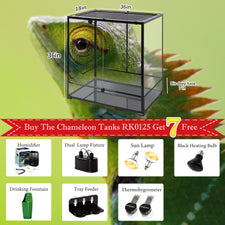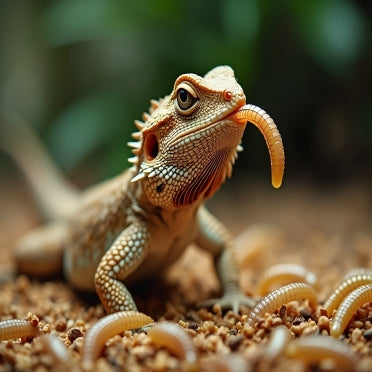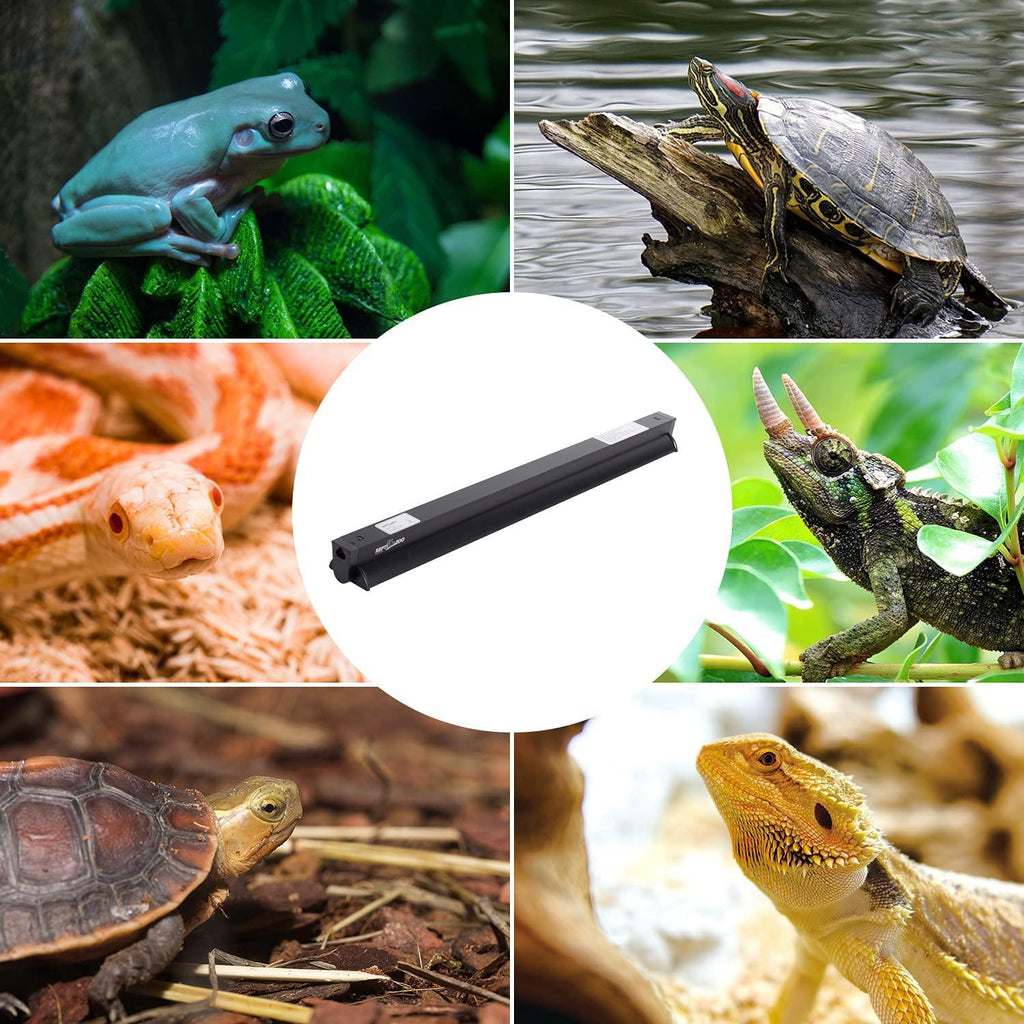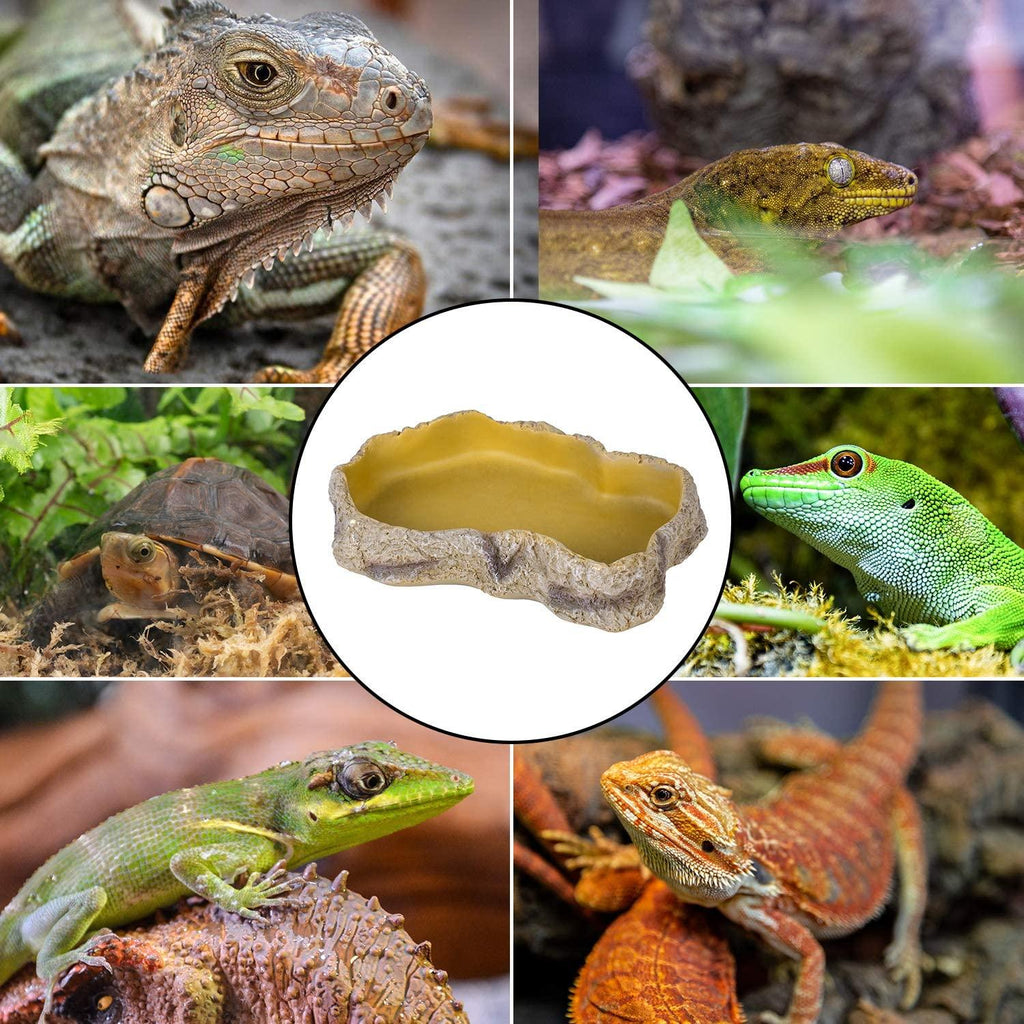If you are a parent of a bearded dragon it means you know exactly about their nutritional needs and how to keep them healthy and happy. You must know about the foods that you can feed our bearded dragons, their quantity, and when to feed them. You should also know about what to feed them in specific age brackets. You may not find any bearded dragon food store in the market where you can get the food that you get for your other pets. So you must know about the options you have like insects, veggies, and fruit. Having complete knowledge will help you feed the right food to your bearded dragon. In this blog, we will discuss what bearded dragons eat and some tips for feeding your bearded dragon.
Bearded dragon diet
The best bearded dragon diet that you can give to your bearded dragon is the one that is balanced and diverse. As you know bearded dragons are omnivores, they grow best on a diet that is a mix of plants and other animal-based foods that include insects and worms. They can also eat veggies and fruits like sweet potato and strawberries. However, the best thing you can do is to consult your vet for expert advice before feeding anything to your pet.
Diet plan according to age
The diet of your bearded dragon needs to be controlled and based on their age. For baby dragons, the diet must consist of 80% insects and 20% vegetables but sometimes they can be a bit choosy and eat more leafy green insects than bugs.
However, as your baby dragon grows into an adult this ratio will be changed and vice versa and they will need a more plant-based diet and less animal protein. In their juvenile stage, you can feed them a small amount of fruit but not daily. A diet that is rich in green plants and has less animal protein will keep them at a healthy weight and prevent obesity.
Comfortable Tank Environment for a Healthy Bearded Dragon Diet
However, providing a proper bearded dragon tank setup is critical not only for their physical well-being but also for their dietary health and feeding behavior.
A comfortable and species-appropriate reptile tank environment supports optimal digestion and encourages natural feeding habits. Bearded dragons are ectothermic, meaning their body temperature is regulated by external heat sources. Proper thermoregulation, achieved through a well-designed tank with a temperature gradient (typically 75–85°F on the cool side and 95–110°F in the basking area), is essential for effective metabolism. Without adequate heat, a bearded dragon’s digestive system slows down, reducing appetite and increasing the risk of impaction and malnutrition.
Lighting also plays a crucial role. Full-spectrum UVB lighting in the tank promotes vitamin D3 synthesis, which is necessary for calcium absorption—an essential aspect of a balanced bearded dragon diet. A lack of UVB exposure can lead to metabolic bone disease, severely impacting feeding behavior and long-term health.
What to feed your bearded dragon?
Bearded dragons enjoy eating a mixed diet that consists of flowers, insects, fruits and veggies, and even small rodents. Beardies living in the wild eat more insect-based diets because of their active lifestyle as they crawl through the bushes, do earth burrowing, and rock running, so they consume most of their calories especially those that are coming from insect insect-rich diet.
On the other hand, if you have a domesticated bearded dragon he must have a less active lifestyle because they have less room and fewer opportunities. Therefore, you need to keep an eye on their diet so they don’t become obese. No doubt your bearded dragon can become overweight as they love to eat and want to consume anything you feed them, so you must do portion control and provide them a balanced diet so they live a long and healthy life.
Here below we discuss in detail the different foods that you can feed them:
Live food for bearded dragons
As we have discussed before bearded dragons are omnivores so they will need insect protein along with plant food. If you have a young bearded dragon you can feed the insects daily and for adults you can feed two to three times a week. You can provide them with as many insects as they can eat in 15 to 20 minutes, and remove the food after that. Never leave your bearded dragon unattended with live prey. It is important to follow these guidelines so you don’t overfeed, give them healthy food, and also able to keep an eye on their health and any medical problems.
Among the insects, the most popular option is the crickets, as they are convenient and also nutritious food for your bearded dragon. Crickets also contain an excellent calcium-to-protein ratio. Furthermore, it is also easy to get them from any store. Bearded dragons also love to eat roaches and Dubia roaches are their favorite one. It is also a healthy option as it is low in fat and a good source of protein.
There is also a wide option of feeding worms to your bearded dragon as it is a safe and healthy choice for them. Some of the worms are rich in nutrients as compared to others and others are simply considered the best option when you are giving them treats. Some popular worms that you can feed your bearded dragons are:
· Silkworms
· Black soldier larvae
· Mealworms
· Earthworms
· Waxworms
· Hornworms

Veggies for bearded dragons
Feeding veggies to your bearded dragon is important as it is a great way to make sure that are getting a nutritious and well-balanced diet. Additionally, there is no constraint on how much veggies you can feed your bearded dragon, you can feed them as much veggies as you like every day and you don’t have to worry about your bearded dragon getting ill with this diet. However, one thing you should keep in mind is that of all the plants you are feeding 80 to 90% must be vegetables. For all the dark green and leafy vegetables there is no harm in feeding colored vegies as they are also safe for them. Here are the options of veggies to choose from:
· Dandelion greens
· Mustard greens
· Turnip greens
· Bok choy
· Watercress
· Romaine lettuce
· Butternut squash
· Zucchini
· Bell peppers
· Okra
· Sweet potato
· Carrots
· Green beans
· Endive
· Cucumbers
Fruits for Bearded Dragons
Vegetables are the major source of the diet of bearded dragons but you can also feed them occasional treats like some juicy and sweet fruits. However, vets recommended that to keep fruit consumption to a minimum level and don’t feed them no more than 5% of their regular diet. Fruits contain sugar and they should be fed in small quantities to keep your pets healthy.
We have presented here a range of safe fruits also secondary treats that you can also use as variation in your diet. However, always keep in mind that vegetables are the first choice for the good health of your bearded dragons. Here is the list of the best fruits you can feed your bearded dragons:
· Strawberries
· Blueberries
· Raspberries
· Watermelon
· Melon
· Pears
· Apples
· Bananas
· Peaches
· Mango
· Blackberries
· Papaya
How to feed your Bearded Dragon?
The way you want to feed your bearded dragon depends on the food you are going to present them. Here we have discussed some of the best feeding techniques that will make feeding safer and easier for you.
Feeding Tongs: These are small tweezer-like objects that will help you hold live insects safely and they will not bite and affect your hand.
· Reptile Feeders: These feeders are made for reptiles and they function in a way to present worms and other prey items so they won’t escape.
· Food Bowl: Reptile Bowls are great for feeding commercial or pellet diets as they keep the enclosure neat and clean.
If you use the right feeding equipment it will help your bearded dragons to eat comfortably and make the feeding time fun and easy for them.
How to store bearded dragon food?
It is essential to store the food properly to keep it eatable and fresh. If you are feeding insects their storage method depends on the type of insect. Cricket feeders are contained in a cricket feeder container, but the worm and other insects that are not able to jump or fly are kept in a plastic bag container. For fresh fruits and veggies, you can store them as your products in the refrigerator so they stay crispy and fresh for consumption. To store commercial food like pellets, use airtight containers that will keep them fresh and contamination-free. By storing their food properly you can provide them the best possible nutrition.
Feeding tips for bearded dragons
There are a few guidelines to keep in mind when feeding your bearded dragon to ensure they stay healthy and safe.
· The size of the insect is very crucial when choosing for bearded dragon. Select insects whose size is not bigger than the distance of the bearded head. Large-sized insects can cause blockage, choking, or constipation.
· The same goes for the fresh vegetables and the fruits, which should always be chopped into bite-size pieces. As the teeth of bearded dragons are made for cutting not grinding it’s easier for them to eat bite-size pieces of vegetables and fruits.
· Bearded dragons have voracious appetites so be careful not to overfeed them so they don’t become obese and suffer from other problems like joint diseases and liver issues. You can ask for help from your vet and adjust your diet accordingly.
· When feeding live insects to your bearded dragon always keep an eye on them to make sure that they eat their prey and no stray insect is roaming around their enclosure.
· Hand feeding helps in building trust with your bearded dragon but it should not be done regularly, and let your beardie forage naturally so they don’t depend on you for food. Instead of hand feeding you can place the food in different spots of the enclosure to stimulate their instincts.
FAQS
Can bearded dragons eat grapes?
Grapes are the most popular fruits among children, adults, and even bearded dragons. You can give grapes to your beardie but you must evaluate their health first. If your pet is healthy and not
suffering from some health condition like obesity, or diabetes then it is fine to feed them grapes on a weekly basis. If your bearded dragon is suffering from any disease like the aforementioned then feed the grapes once a month. But you should go to your to check if grapes are not causing any damage to your bearded dragon.
Can bearded dragons eat strawberries?
Yes, your bearded dragon can eat strawberries; just remember, only in moderation. Strawberries are very nutritious and are beneficial for humans and bearded dragons alike. They have a low phosphorus: calcium ratio, if you are comparing them with the other fruits. Similarly, strawberries are easy to eat for bearded dragons as they are soft and the seeds are also small so no choking hazard. But you should not give the plant's steam to your beardie. All these characteristics make strawberry an appropriate treat and can be given once a week.
Can bearded dragons consume blueberries?
Yes, your bearded dragon can consume strawberries; but, just a little bit. Strawberries are extremely nutritious and are beneficial to both human beings and bearded dragons. They have a low phosphorus: calcium ratio, if you put them in comparison with the other fruits. Similarly, strawberries are easy to digest for bearded dragons because they are soft and the seeds are too small so there is no risk of choking. But you should not provide the plant's steam to your beardie. All of these traits qualify strawberries as a healthy treat and you can give them once weekly.
Can bearded dragons eat bananas?
Yes, but only in small quantities such as once-a-month treat. Banana is a healthy soft treat for your pet and are highly nutritious in phosphorus, calcium, vitamins A, and C, etc. If you feed bananas in small quantities it has some important advantages. But in excess amounts bananas are not fine they will end the life of your bearded dragon since bananas have extremely high phosphorus and calcium ratio thus phosphorus is in greater proportion compared to calcium and hence it is toxic for your pet. Thus, never offer bananas more than once in a month.
Can bearded dragons eat mice?
No, because bearded dragons are omnivorous so they get most of the animal protein from insects and worms. Feeding mice to bearded dragons will disturb their stomachs and provide them with health issues. So always keep the regular feeding routine like insects and vegetables.
Conclusion
A well-balanced and healthy diet is necessary to keep your bearded dragon active, happy, and healthy. As an omnivorous species, they require a mix of vegetables, insects, and sparing fruits as their dietary needs fluctuate during growth from juvenile to full-grown adult. Proper storage of the food, portioning, and feeding process all contribute importantly to making your beardie get the best out of its diet. Your veterinarian is a valuable resource person to consult on your pet's specific dietary needs. Your bearded dragon will live a long, happy, and healthy life if it receives good care and nutrition.












